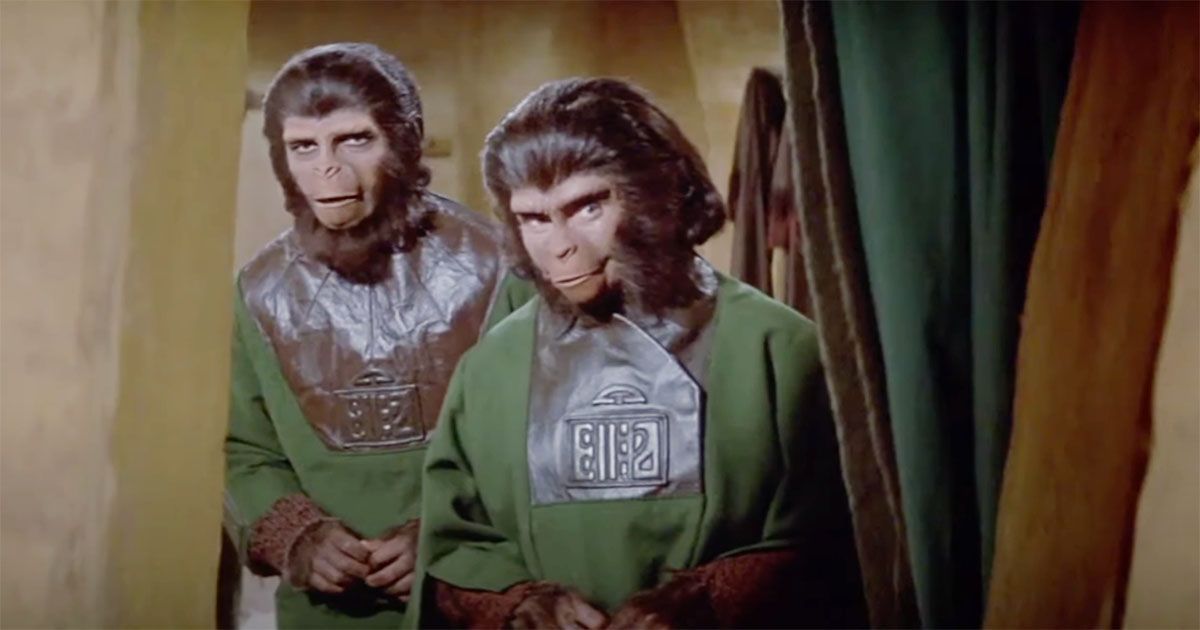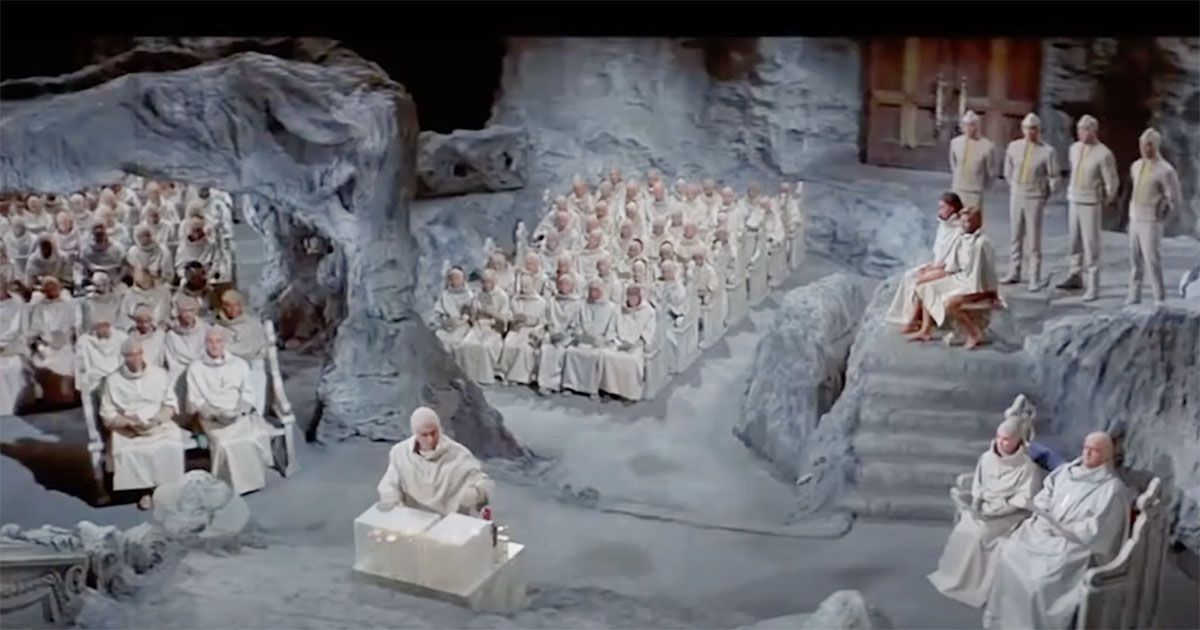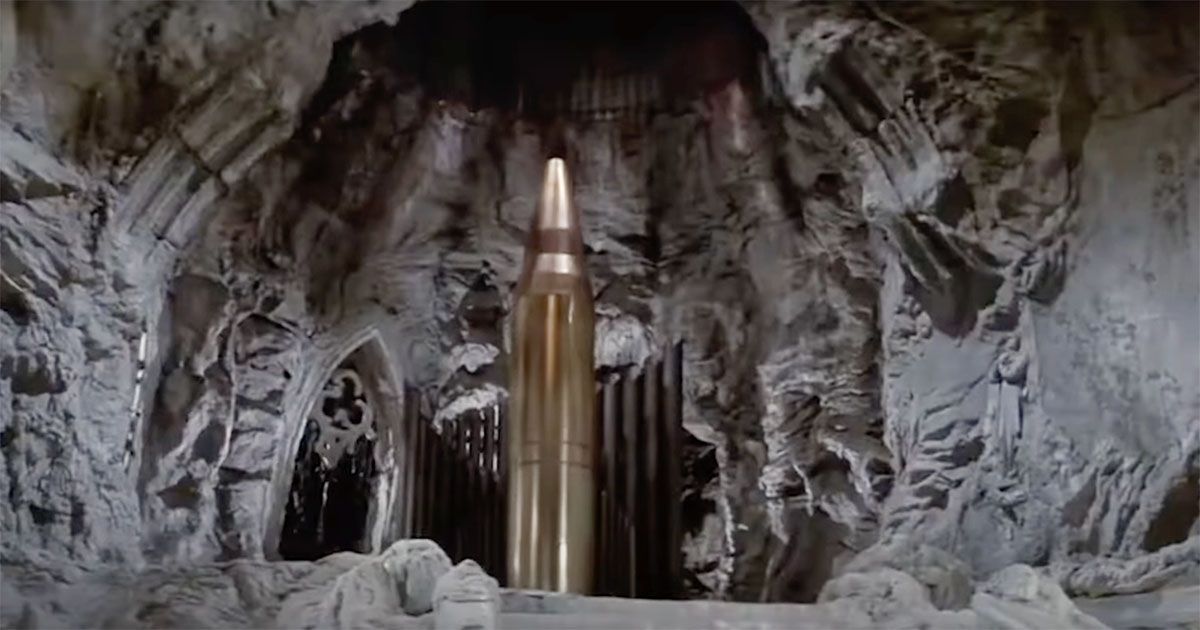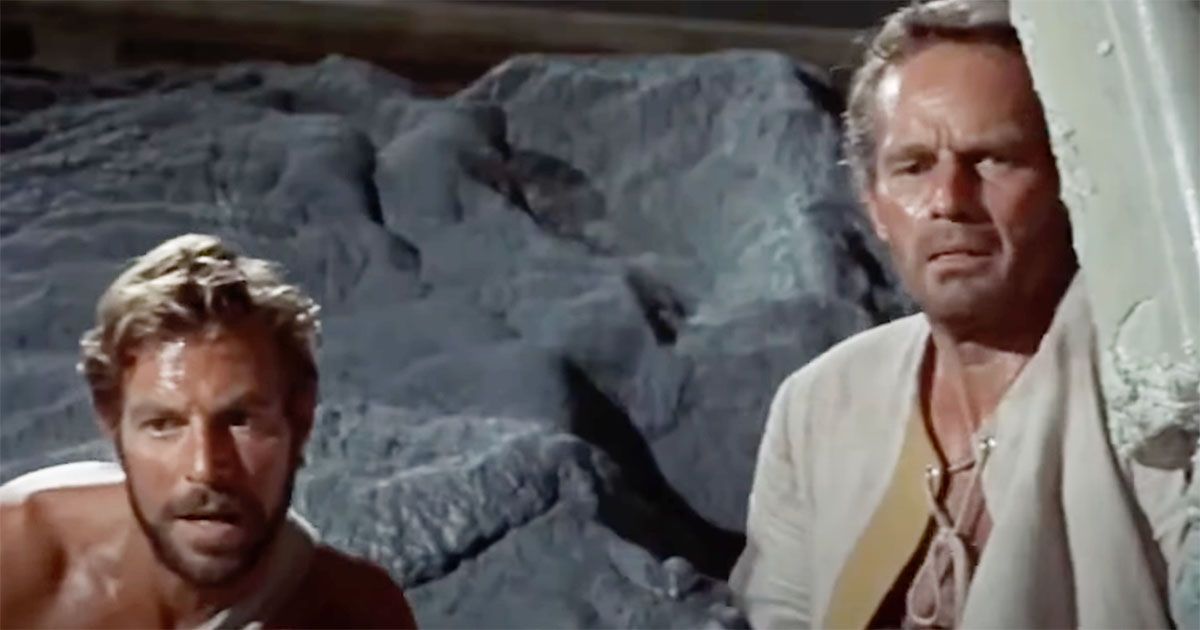A Haunting Journey Through a Broken World in "Beneath the Planet of the Apes"
Beneath the Planet of the Apes (1970), directed by Ted Post, explores the dark consequences of humanity's past. Rating: 6.0/10.

"Beneath the Planet of the Apes," released in 1970 and directed by Ted Post, serves as the second installment in the iconic Planet of the Apes franchise.
Following the surprising success of the original film, this sequel features a screenplay by Paul Dehn, based on a story by Dehn and Mort Abrahams. The narrative introduces James Franciscus as Brent, an astronaut sent to find the missing George Taylor, portrayed by Charlton Heston, who agreed to return for a brief cameo. Linda Harrison reprises her role as Nova, while Maurice Evans and Kim Hunter also return as Dr. Zaius and Zira, respectively.
Despite its ambitious premise and the return of familiar characters, "Beneath the Planet of the Apes" struggles to capture the same profound essence that defined its predecessor.
The film ambitiously explores themes of paranoia, militarism, and the consequences of nuclear warfare, yet often falls short in execution, feeling like a retread of past concepts.
While it boasts some striking moments, the film struggles with pacing, character development, and occasionally incoherent narrative threads. Nonetheless, it retains a certain grim fascination, particularly with its darkly nihilistic ending that challenges the viewer to contemplate the cyclical nature of violence and power dynamics.
| Key | Value |
|---|---|
| Title | Beneath the Planet of the Apes |
| Director | Ted Post |
| Writer | Paul Dehn, Mort Abrahams, Pierre Boulle |
| Actors or actresses | James Franciscus, Kim Hunter, Maurice Evans |
| Rated | G |
| Runtime | 95 min |
| Box Office | $18,999,718 |
| U.S. Release Date | 26 May 1970 |
| Quality Score | 6.0/10 |
Synopsis
In a post-apocalyptic world, intelligent apes dominate the landscape, oppressing the remnants of humanity as the plot of "Beneath the Planet of the Apes" unfolds.
Brent, seeking to find Taylor, discovers not only the civilization of the apes but also the darker underbelly of this new order. His exploration leads him to an underground enclave inhabited by mutated humans who possess telepathic abilities. These beings worship a nuclear weapon, which serves as a symbol of their desperation and the destructive legacy of civilization.

As Brent navigates this fraught environment, he encounters the various factions in conflict, including the dominant ape society led by Dr. Zaius, who is determined to keep the truth of their origins hidden at all costs.
The tension escalates as Brent grapples with the moral implications of both the ape and human actions, raising questions about survival, governance, and the very essence of sentience.
The film culminates in a gripping confrontation, forcing Brent to make a harrowing choice that could alter the fate of both species. In this way, "Beneath the Planet of the Apes" presents a chilling meditation on the consequences of humanity's past, challenging the audience to reflect on the precarious balance between civilization and annihilation.
Themes
"Beneath the Planet of the Apes" immerses the viewer in a world characterized by both visual grandeur and unsettling undertones, combining thoughtful cinematography with a tense, foreboding score. The film's aesthetics powerfully evoke the conflict between nature and technology, exemplified by the lush landscapes of the ape civilization juxtaposed against the stark, decaying remnants of human society. This duality serves as a continual reminder of the catastrophic consequences of humanity's past actions.
A significant theme that resonates throughout the film is the tension between knowledge and ignorance. Dr. Zaius emerges as an embodiment of this struggle, fiercely protecting the status quo of ape superiority while being aware of humanity's catastrophic history. His character raises questions about the futility of hiding the truth.

This theme challenges the audience to contemplate the implications of information suppression in any civilizational context. One's knowledge of history can illuminate the present and inform the future, but it can also be a source of fear that leads to oppression.
The conflict between the apes and the underground mutants further manifests this theme. While the mutants possess advanced telepathic skills, their power is overshadowed by their desperation and subjugation, provoking thoughts about the potential consequences of an unthinking society.
Isolation also plays a critical role in "Beneath the Planet of the Apes." Brent's journey is not just a physical expedition to find Taylor but also a metaphorical exploration of alienation within a world that has fundamentally transformed.
Though organized and ostensibly civilized, the apes isolate themselves from humanity and each other as mistrust and fear riddle their societal structure. The underground mutants, hidden from the surface and trapped within the ruins of their past, become a powerful symbol of humanity's estrangement not only from itself but from the natural world.

This stark separation reverberates through the narrative, encouraging viewers to ponder societal possibilities and the fragility of humanity's collective identity.
The auditory elements of the film further enhance this sense of isolation. The score, composed by Leonard Rosenman, is characterized by dissonance and tension, reflecting the anxiety permeating the characters and their environments.
The chilling sounds of the apes, interspersed with unsettling silence, amplify the theme of fear. Conversely, sound also signifies hope. The faint echoes of humans attempting to reclaim their lost legacy serve as a haunting reminder of what once was, evoking a profound sense of nostalgia and despair.
Furthermore, the nuanced interplay of power dynamics presents an exploration of authority and rebellion. Brent's discovery of the telepathic mutants illustrates the consequences of unchecked power, resulting in a society of subjugated beings and posing questions about the ethical responsibilities of the powerful.

This juxtaposition amplifies the film's critique of militarism and destruction, culminating in a dark conclusion that embodies the idea that the cycle of violence is unending and self-perpetuating.
In conclusion, "Beneath the Planet of the Apes" is not merely a continuation of a franchise but a poignant commentary on the human condition itself. It encourages viewers to grapple with themes of knowledge, isolation, and power through its compelling visual and auditory composition.
The experience of watching this film is a complex blend of dread and fascination, overshadowed by the haunting reminder of what humanity has lost and the ever-present risk of repeating its mistakes. This haunting exploration lingers in the mind long after the credits roll, prompting reflections on the paths society chooses and the future that awaits.
Who Will Enjoy Beneath the Planet of the Apes
"Beneath the Planet of the Apes" may appeal to a broad audience, particularly those who relish exploring the darker, more philosophical aspects of science fiction. Fans of dystopian narratives will find much to ponder in its examination of power dynamics and the consequences of societal collapse. The film serves as an engaging choice for viewers who appreciate cinema that invites reflection on humanity's future and moral quandaries.
One might consider scheduling a viewing of this film during a nostalgic movie night, perhaps alongside others from the classic science fiction genre.

It would also work well as a thematic double feature with films that similarly critique corporate greed or explore post-apocalyptic landscapes, such as "Dark City" or "The Terminator." Such pairings can enrich the experience, allowing viewers to engage with recurring motifs of oppression and survival.
Additionally, those who enjoy the original "Planet of the Apes" will undoubtedly find "Beneath the Planet of the Apes" a worthy follow-up. While it does not reach the same heights as its predecessor, it offers depth in its exploration of the implications of humanity's past actions and the fundamentals of coexistence.
The echoes of classic Westerns and the inherent existential questions posed by living in a world marred by conflict will resonate with cinephiles who appreciate layered storytelling.

The apes, organized and seemingly civilized, isolate themselves from humanity and even from each other, their society riddled with mistrust and fear. It ultimately presents an intriguing and grimly captivating premise, yet it does not entirely realize the potential found in its narrative fabric.
Though the film may not reach the transcendent heights of its predecessor, it remains a significant entry within the science fiction canon. It provokes thought about human nature and the cyclical nature of violence and economy, which some audiences may find compelling.
Overall, if you are interested in the philosophical underpinnings of dystopian narratives and the evolution of the "Planet of the Apes" franchise despite its flaws. In that case, it still presents a rich tapestry of ideas and imagery—an opportunity to delve into a world that challenges viewers to consider the delicate balance of civilization and the specter of destruction that looms over it.

